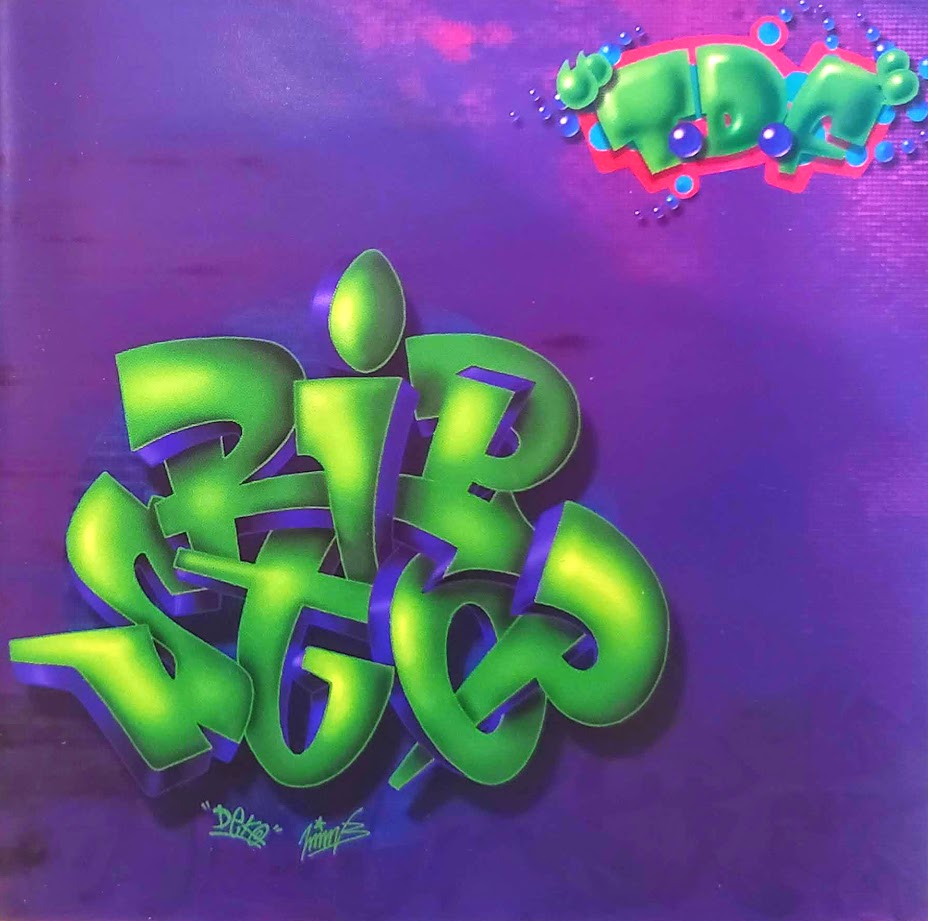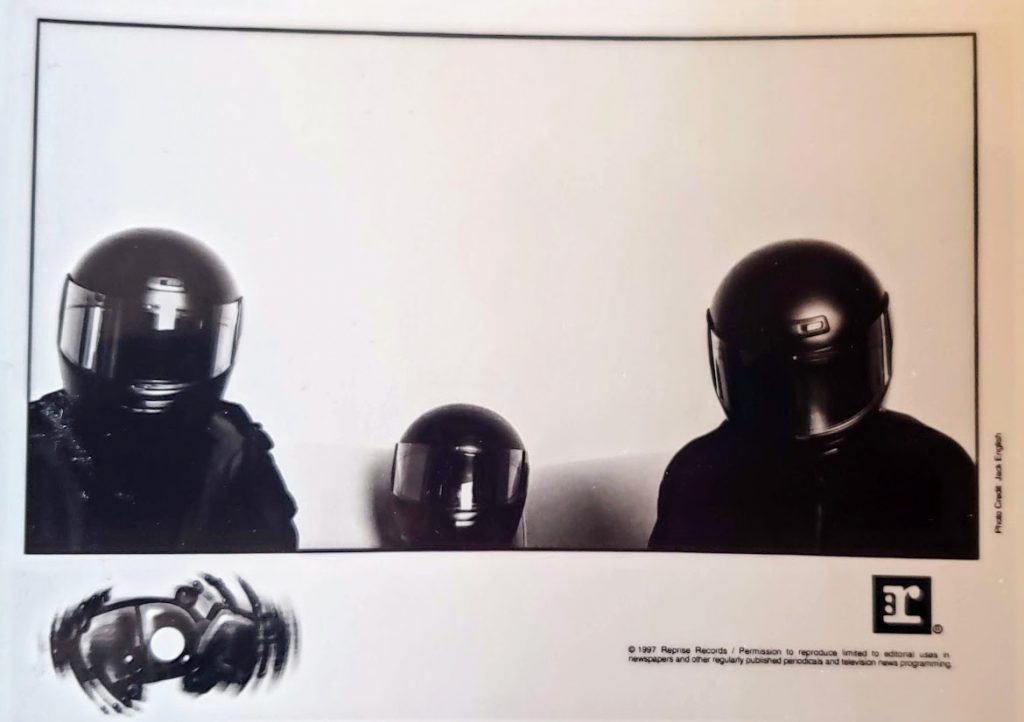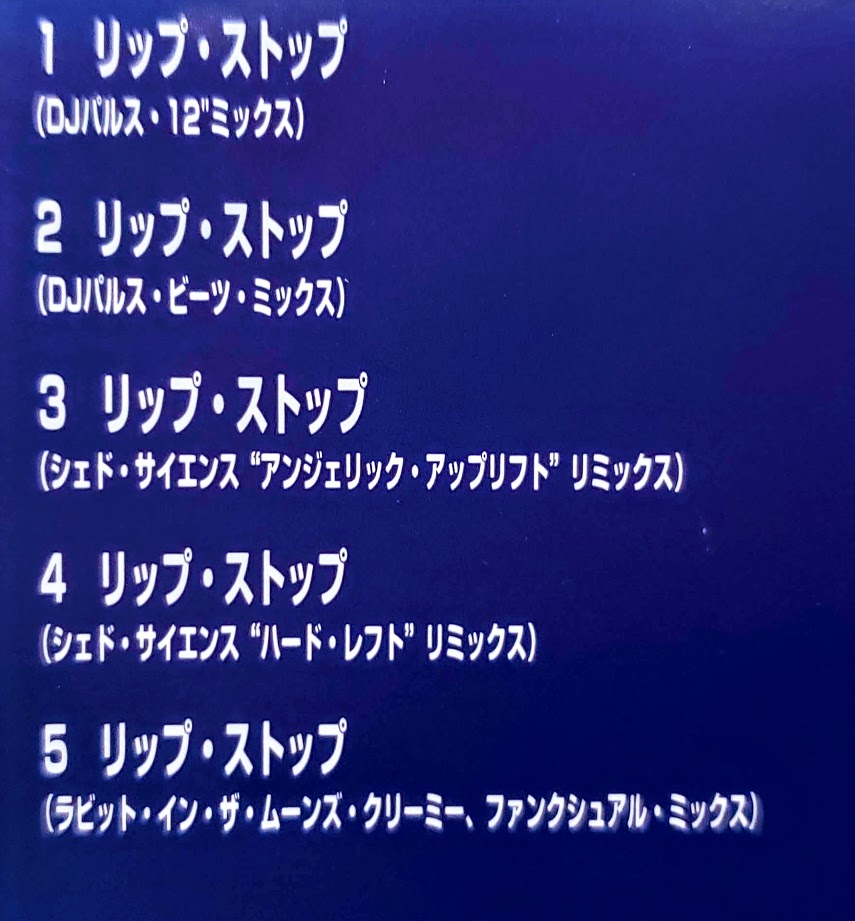
TDF
Rip Stop (DJ Pulse 12″Mix)
Rip Stop (DJ Pulse Beatz Mix)
Rip Stop (Shed Science ‘Angelic Uplift’ Remix)
Rip Stop (Shed Science ‘Hard Left’ Remix)
Rip Stop (Rabbit in the Moon’s Creamy, Funkshunal Mix)
I’m not a Clapton guy. I’ve never been. Sure, I dig me “Layla” (the real version, not that acoustic slog) and I can respect “Tears In Heaven” for its intent and meaning even if the song itself is kind of wallpaper to me. And, of course, Cream was a juggernaut of a band. But the whole “Clapton is God” thing? I just never got that.
Maybe it’s because I grew up in a world that already had Jimi Hendrix so I knew what god on guitar actually sounded like. Or maybe it’s just because the Clapton that existed in my formative years was the Clapton that put out adult-contemporary snoozefests like the aforementioned acoustic version of “Layla” or the absolutely hideous “My Father’s Eyes.”
“My Father’s Eyes” is off the album Pilgrim, which was produced by Clapton and Simon Climie, who was best known in the UK for his group Climie Fisher as well as his production and songwriting work for artists like George Michael and Westlife. But Pilgrim was not the first project that Clapton and Climie worked on, but the other kind of flew under the radar at the time unless you were on the look out for it.
In 1997, Clapton teamed up with Climie to form the group T.D.F. and release the album Retail Therapy, a collection of electronic/ambient tunes based around jam sessions by the two.
Strangely, Clapton is entirely uncredited in the album’s liner notes. Instead he goes by the name “X-Sample.” Furthermore, all photos of the group in the liner notes featured them hidden behind motorcycle helmets.
Clapton wasn’t the only 60s rock icon to try and re-invent himself in a somewhat anonymous way in the 1990s to earn hipster points. Before this, Paul McCartney collaborated with Youth on the Fireman project, which was also more electronic and experimental in nature than his previous work. Bowie also briefly toyed with the idea of adopting a pseudonym for his electronic music, releasing one single and performing a secret show as the Tao Jones Index (which is a great name).
But while Bowie and McCartney at least went through the motions of pretending they weren’t involved with their pseudonymous releases, Clapton apparently made no such effort. Every contemporaneous review and news item of the album I can dig up clearly know that X-Sample is Clapton. Here’s an MTV News item announcing the album’s release as Clapton’s “techno album.”
With Clapton’s involvement well-known by the time of the album’s release, reviewers perhaps were a bit pre-judgemental in their assessment, hoping for something a bit more guitar driven and rock in nature, and instead getting a collection of ambient electronic pieces with an occasional drum and bass bent. Retail Therapy was not a well-received record, although most of the reviews tended to fall along the lines of ambivalence than outright disgust, One article I read referred the album as “not uninteresting,” which is praise that’s so faint it’s transparent. AllMusic retroactively gave the album a sad one-and-a-half star review, but the review itself treats the album more as something that’s forgettable rather than outright terrible, dishing out adjectives like “meandering” and “misguiding.” A review from the Hartford Courant is probably the most negative of the bunch, calling it “middling techno ambient stuff that takes a turn toward sleepy time New Age” but it still seems to lean more on the side of boring than awful.
I think I enjoy T.D.F. more than most of the critics, but even I have to admit that their album is, at best, an uneven piece that’s hard to entirely recommend. The first half of the record is actually pretty good, if you’re like me and dig instrumental rock and/or light electronic music. And there’s the fantastic track “Seven” which mixes drum and bass beats and a B.B. King sample with some honest-to-goodness great guitar playing by Clapton.
But on the second half of the record things really take a dive, with much more meandering, bland guitar work by Clapton. There’s also the absolutely horrendous “What She Wants,” an ear-splittingly atrocious piece mid-90s adult contemporary elephant dung that sounds like something that Savage Garden would’ve tossed int the trash for being too bland. This was the track from the album that was released as a single with a radio edit, so they probably had some degree of hope that it might’ve broken through. It’s a garbage track, for sure, but it’s garbage in the same way that a lot of Top 40 radio was in the mid-to-late 90s music was, so I’m actually surprised it wasn’t a hit.
However, one album highlight does manage to sneak in near the end, the stand-out track “Rip Stop,” which mixes drum and bass beats, vocal samples, and light guitar playing by Clapton. While “What She Wants” was a single for radio play, “Rip Stop” was picked as a single for the clubs, with various 12″ releases seeing the light of day with various remixes. I suspect not a single club DJ even bothered with it, however.
The tracks I’m sharing tonight are from the Japanese CD Single for “Rip Stop.” As you can see from the remix titles, they were able to finagle some relatively big names into remixing the tracks, with two mixes by early drum and bass producer DJ Pulse as well as a one by remix giants Rabbit In The Moon (I have no idea who Shed Science is though).
As a whole, the remixes are good and work to the song’s strengths, mainly the dope beats and overall vibe. Some downplay Clapton’s guitar work to an almost comical effect, with others bring it to the forefront. Of the bunch, I enjoy Rabbit In The Moon’s take on the track the most. It’s hella long, and incorporates a lot of interesting new elements. It also is slow to bring in Clapton’s guitar. The riff doesn’t even make a prominent appearance until about halfway through the song’s 12-minute run time. It’s a good build.
And it’s certainly better than anything else Clapton put out since that song for that pool movie with Tom Cruise.



And on the subject of instrumental Clapton guitar-synth tracks… (not a subject I ever thought I’d comment on, but here we go) The British 80s TV series Edge of Darkness had a brilliant and haunting Clapton theme. As far as I can tell, the only place it was ever made available is as the last encore on his live album, 24 Nights. Once heard never forgotten. The series itself also gets my highest recommendation. Bizarrely it was remade as a Mel Gibson movie by the same director 25 years later; not seen that and won’t see it, but the original is a fascinating, almost dreamlike Cold War nuclear paranoia thriller packed with surreal visual moments.
I’ve been reading this blog years and I’ve finally managed a relevant comment and to point you in the direction of something you may not have heard of. This is a red letter day for me.
Very interesting and thanks for reading all these years too!
Just re-stumbled back to your blog after a few years, a house move and lost “favourites” bar when a computer broke.
Anyway enough excuses. Love your ethos, love the random variety of stuff you post, varieties the spice of life and all that.
I remember buying this 12 and used to love using the rabbit in the moon mix to seg between house bpm and some DnB bangers.
Hope you are staying safe, loving the obscure Madonna mixes too.
Cheers
H